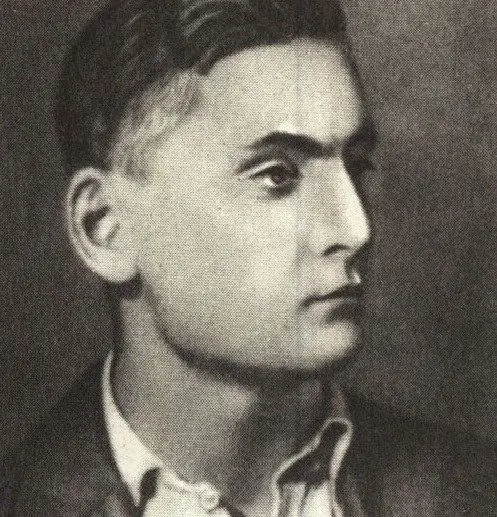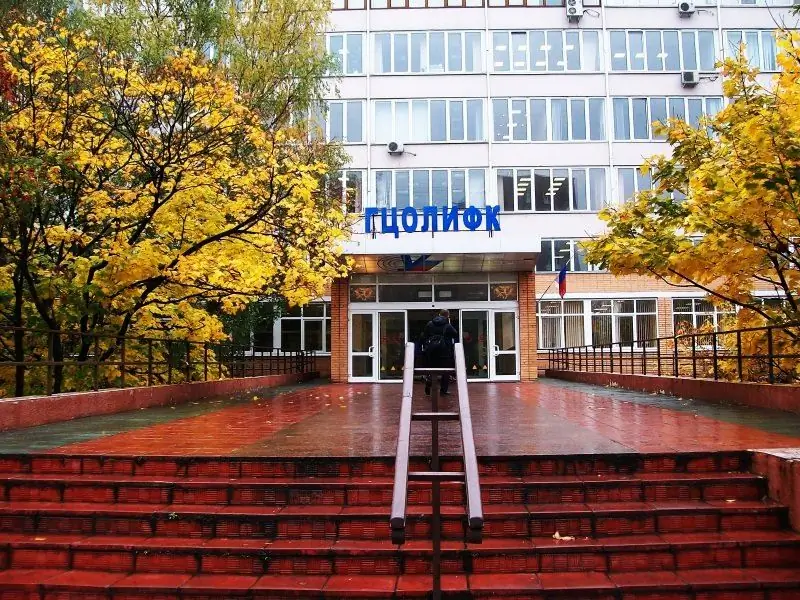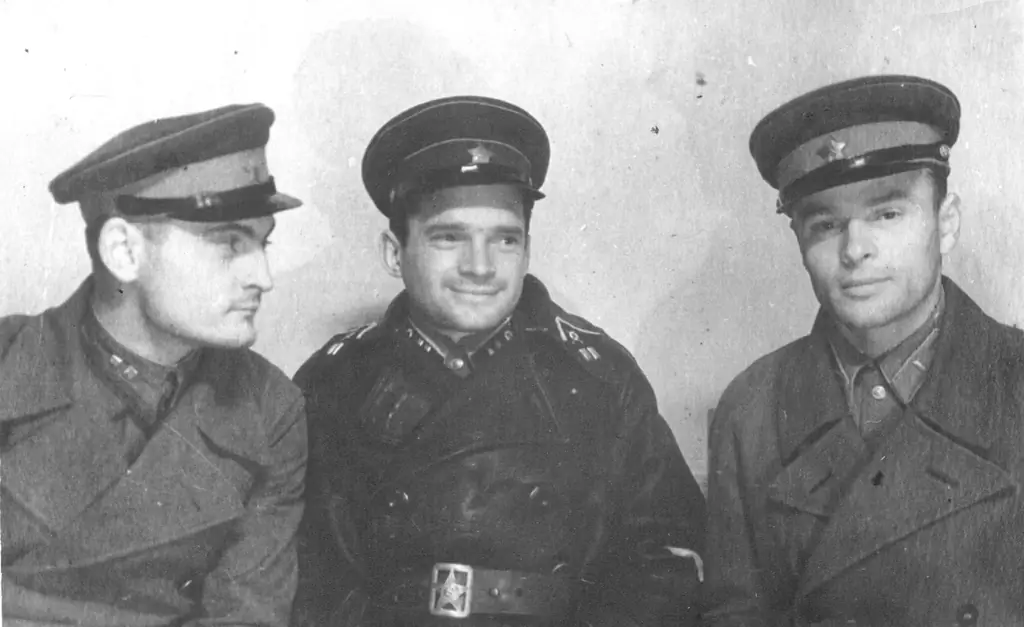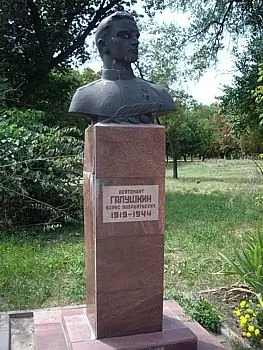- Author Antonio Harrison harrison@cultureoeuvre.com.
- Public 2023-12-16 07:44.
- Last modified 2025-01-22 21:44.
Boris Galushkin is from the generation whose fates were irrevocably changed by the Great Patriotic War. In a peaceful life, he was a member of the Komsomol, studied, was seriously engaged in boxing. In 1941, he readily went to the front and showed himself there as a real hero. Unfortunately, he was not destined to survive and return home.

Life before the war
The biography of Boris Lavrentievich Galushkin originates on August 12, 1919 in the city of Aleksandrovsk-Grushevsky (now the city of Shakhty) in the Rostov region. He was born into a simple working-class family, went to school in his hometown. Soon, together with his parents, he moved to Belovo, Kemerovo Region, and then to the capital of the Chechen-Ingush Autonomous Soviet Socialist Republic, the city of Grozny.
Boris's active and active character began to manifest itself while still at school. In 1934 he became a member of the Komsomol and just a year later was elected secretary of the school Komsomol organization. His passion and success in boxing strengthened his desire to move in this direction. But first I had to give up my dream of becoming a pilot. Having received a certificate of secondary education, in 1937 Galushkin tried to enter the Kharkov flight school, where he was rejected due to myopia.

Then he moved from Grozny to Moscow to take a two-year course at the school of trainers at the State Institute of Physical Culture (GTsOLIFK). Then the young athlete was admitted to the institute immediately for the third year. In addition to his studies, Galushkin took part in the party life of the institute - he was the deputy secretary of the Komsomol organization.
While studying in Moscow, an acquaintance took place, which led to changes in Boris's personal life. He met his future wife Lyudmila, who was from Yaroslavl. She later recalled that a new student, who came to their group in his third year, began to sit down with her in lectures and quickly scared off other potential gentlemen. Two days before leaving for the front, Galushkin managed to marry Lyudmila.
The news of the beginning of the war found him at a boxing competition near Leningrad. Boris was then in his fourth year, but firmly decided to leave to fight. June 29, 1941, among the volunteers of the sports society "Dynamo" joined the ranks of the Red Army. He sent his wife Lyudmila to her sister in Grozny, then she left for Yaroslavl and worked in a hospital. Her career continued at home and in peacetime. Lyudmila Anatolyevna taught at the Yaroslavl Pedagogical Institute for many years.
War time
In the fall of 1941, Galushkin ended up on the Leningrad Front and was wounded in the thigh in the first battle. After a short treatment, he escaped from the hospital to return to his native part. And he was immediately involved in a responsible mission - to destroy the enemy grouping that penetrated the rear of our army. Galushkin, at the head of a detachment of fighters, ambushed the Nazis in a swamp. All night they waited for the enemy, standing waist-deep in the swamp. More than a hundred Germans fell into this ambush, blew up on a mined road, and then came under automatic fire. The enemy squad was completely destroyed. For the successful completion of a combat mission, Boris Galushkin received the Order of the Red Banner - one of the highest awards of the USSR.
But the long hours spent in the swamp seriously crippled his health. Boris suffered severe pneumonia, after which he contracted tuberculosis. The young athlete was declared unfit for military service. However, he was not going to give up so quickly. Returning to Moscow, I learned at the institute that many student friends are in the special purpose brigade.

This unit was formed to carry out special assignments of the High Command and the NKVD on the front line or in the rear. The command staff included graduates and cadets of the Higher School of the NKVD, border guards, and security officers. Among the ordinary members of the brigade there were many athletes, coaches, students, as well as political emigrants from Bulgaria, Spain, Germany, Slovakia and other countries.
Galushkin went to one of the brigade's divisions. At first, they did not want to accept him after learning about health problems. Then they decided to leave it just in case. So Boris joined a separate motorized rifle brigade for special purposes (OMSBON). At the beginning of 1942 he was included in a combat group under the leadership of Senior Lieutenant Mikhail Bazhanov. They had to get into the enemy's rear in order to suspend movement on the Orsha-Smolensk railway section, to destroy warehouses with food and ammunition. The group commander appointed Galushkin as his deputy. They successfully completed the assigned tasks, although they had to fight in harsh winter conditions, hide for hours in the snow and ski many kilometers without rest.
The next special task, in which he took part, was commanded by junior lieutenant Galushkin himself. Together with his group, he was supposed to deliver the wounded comrade Stepan Nesynov across the front line. For more than two weeks, they covered a distance of 120 km, walked at night, on impassable roads and forests. The wounded Nesynov was carried first on a stretcher, then on themselves, replacing each other. For this task Galushkin was again awarded the Order of the Red Banner.
The last task
In the spring of 1943, the partisan group "Help" under the command of Galushkin waged a war with the enemy on the territory of Belarus. In a short time, they managed to inflict significant damage on the Nazis:
- destroyed 29 steam locomotives, 450 carriages, 4 tanks, 80 cars;
- blew up 24 echelons with military equipment and soldiers;
- put out of action a power plant, a paper mill and a flax mill in the Minsk region.
At the beginning of 1944, the Nazis intensified their fight against the partisans. Several detachments were surrounded. It was necessary to break free at any cost. Galushkin headed one of the assault groups. As a result of a protracted, fierce, unequal battle, the partisans managed to break through the cordon and disrupt the enemy's plans. But Boris Galushkin did not live up to this moment. One of the bullets overtook him in the last battle on June 15, 1944 near Lake Palik in the Minsk region. The brave lieutenant was buried not far from the place of death - in the village of Makovye - in a mass grave.

On November 5, 1944, Boris Lavrent'evich Galushkin was awarded the title of Hero of the Soviet Union posthumously. The memory of him and his exploits is carefully preserved by grateful descendants in all corners of the country where he lived and studied:
- Lyceum No. 26 of the city of Shakhty was named in honor of Galushkin;
- streets in Moscow, Grozny, Evpatoria and Belovo are named after the hero;
- Moscow hosts annual boxing and cross-country competitions in his honor;
- memorial plaques dedicated to him are installed in Belovo, on the building of the lyceum in the city of Shakhty and on the knowledge of the Institute of Physical Culture in Moscow.






